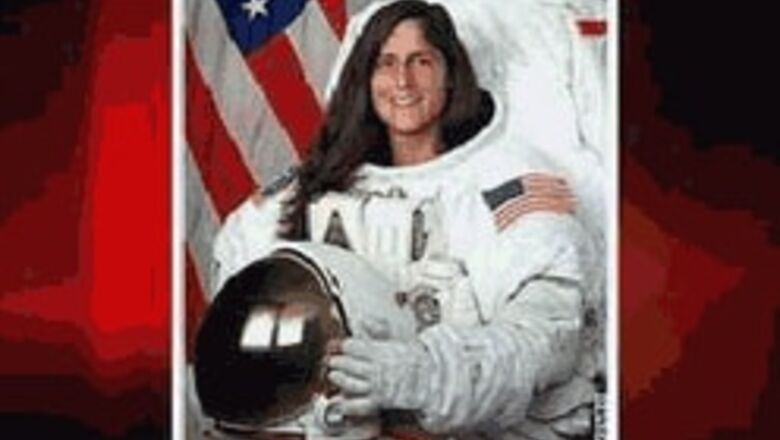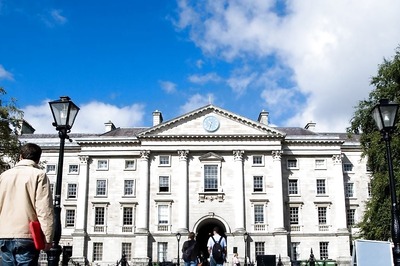
views
Washington: Indian American astronaut Sunita Williams moved into a room with a view at her new home amid the stars for six months as she arrived at the International Space Station with her six companions on board Space Shuttle Discovery.
"Tally-ho on the new home," sang out Suni, as navy commander Sunita Williams is affectionately called by her friends, as the shuttle crew first caught sight of the station. "It's beautiful. The solar arrays are glowing."
Replied astronaut Kevin Ford at Mission Control in Houston, "I don't know what kind of creature comforts are going to be aboard, but I know it's going to be a room with a view."
Discovery astronauts floated aboard the Space Station at 0524 hrs IST on Tuesday, the start of a week-long stay to hook up a new power system so new laboratory modules can be added to the complex.
All the seven, five of whom including Williams are making their first trips to space, scrambled through Discovery's hatch and into the welcoming arms of station commander Michael Lopez-Alegria and his crew, Mikhail Tyurin of Russia and Thomas Reiter of Germany.
Williams will take the place of Flight Engineer Reiter of European Space Agency who will return to Earth with the other six astronauts December 18. The 12-day flight is expected to wrap up with a landing at the Kennedy Space Centre in Florida on December 21.
The crew transfer becomes official when Williams' custom-made seatliner is installed into the Russian Soyuz spacecraft docked to the station.
Lopez-Alegria rang the station's bell to signal his guests' arrival, a naval tradition extended to space. Televised video from aboard the station showed the beaming party of 10 posing for their first group shot.
The shuttle arrived at the station after a two-day voyage at 0442 hrs IST on Tuesday as the spaceships sailed 220 miles (354 km) above the Earth.
"You've got a resident and six houseguests that are ready to come aboard," radioed commander Mark Polansky as he closed in on the station at a tenth of a foot per second and latches automatically linked the spacecraft as they flew 220 miles above southeast Asia during a sunrise "You guys won't even have to wipe your feet when you come in," responded Lopez-Alegria as Polansky reported "Capture confirmed."
Earlier Williams woke up to the "Beep Beep" song by Louis Prima with astronaut Shannon Lucid in Mission Control telling her, "Good morning to you Suni! You need to rise and shine because today is the day that you say, 'Goodbye shuttle and hello station.'"
She radioed back, "I can't wait to see my new home." About an hour before docking at 0442 hrs IST on Tuesday, Discovery did a slow back flip so the space station crew could photograph its belly for any signs of liftoff damage.
Polansky executed the manoeuvre as the shuttle flew about 600 feet beneath the station. The images will be transmitted to Mission Control for analysis.
In the hours before the docking, Discovery made a series of jet firings to put it on course with the space station. Discovery's crew grinned as they waved down to Mission Control via TV camera.
Five of Discovery's astronauts including Williams are first-time space fliers. Polansky told Mission Control, "We're just a little bit happy today."
Discovery is carrying a 2-ton addition to the space station. The $11 million component will be put into place from 0212 hrs IST Wednesday during the first of the mission's three spacewalks.
Astronauts also plan to rewire the space lab, switching it from a temporary source to a permanent one, during the two other spacewalks.
National Aeronautics and Space Administration (NASA) said Monday the shuttle's heat shield appeared to be in good shape, but it will be a few days before engineers can rule out any damage from Saturday's liftoff, the first nighttime shuttle launch in four years.
The space agency has been especially alert to damage to the shuttle's heat shield since the Columbia tragedy in 2003 that killed all seven astronauts on board including Indian born Kalpana Chawla.
A piece of foam had then broken off Columbia's external fuel tank during liftoff and gashed a wing, allowing hot gases to penetrate the spacecraft during its return to Earth.


















Comments
0 comment